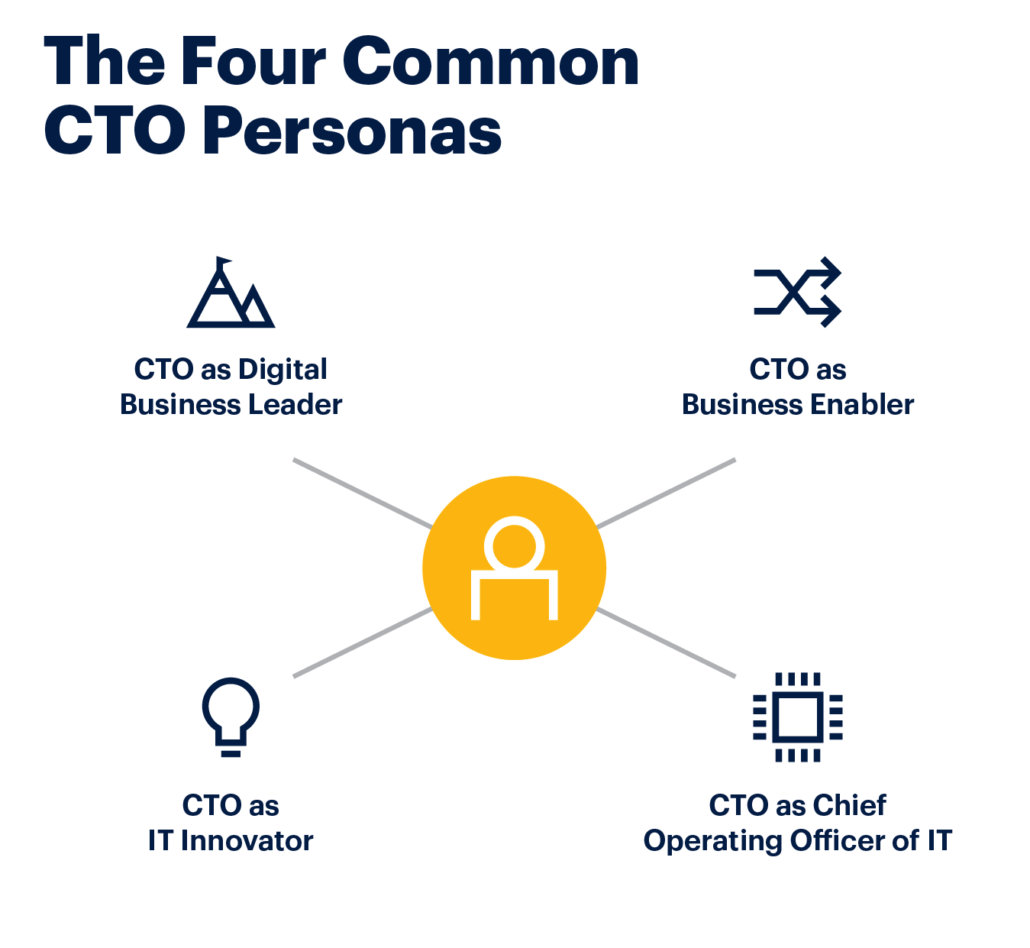400 CTO survey. Main pain points and issues of C-level managers.
March 17th, 2020
During the past 10 years of experience in software development, we’ve seen and conversed with more than 400 CTO and C-level managers. We’ve received a thousand comments, concerns, compliments and appreciation. We’ve also addressed hundreds of issues and problems.
With this accumulation of knowledge, we’ve built this list of the main pain points and concerns CTO’s face.
We asked 400 CTO across all industries, including healthcare, fintech, automotive, energy, agriculture, manufacturing, media and entertainment, and education. Our survey presents significant insights into data and information for almost everybody involved in the information economy and reveals the main pain points, explains them and hopes to prevent other CTOs from making similar blunders.
Who is the typical CTO we work with?
The CTO, as “Big Brother” and “Idea Creator,” gauges how innovative technology could be applied inside the company to accelerate common efforts in:
1) facilitating new working methods and business courses;
2) increasing in income;
3) outpacing competitors in the race for customers.
Afterward, the CTO is in charge of implementing and maintaining this technology often in the position of ‘Operations Manager.’ Therefore, the CTO must have a unique mix of industry and technological experiences with the purpose of effectively outlining the practical and methodological features of the company strategy, and later develop the IT system to perform its elements.
A CTO must deal with the organization’s present tech arrangements, fill in as the outward substance of the organization, know about new innovation, and work with different administrators on a financial limit for executing new arrangements and tackling issues. Notwithstanding these obligations, CTOs should contemplate the organization’s bearings, in general objectives and how innovation will factor into key business choices.

Why do CTO’s decide to outsource software development?
We asked our partners: “Why did you decide to outsource the software development process and how did you do it?”
Global IT investment was predicted to be almost $4 trillion in 2019, a rise of 1.1% from 2018, which was outlined in the most advanced estimate by Gartner. The decisions CTOs make regarding technology implementation and IT spendings are crucial to the profit of the digital business. Up-to-date rising technologies like artificial intelligence (AI), machine learning (ML), or cloud-based solutions will restructure market rules along with the economics of companies. Each year innovative companies invest more and more money in automated solutions, software development and the implementation of cutting-edge technologies. However, to implement new technology, most organizations require additional staff and resources. Here is where our CTOs started to think of outsources.
”Lack of local talents”
Almost 50% of our clients told us that it’s difficult to find experienced developers in their region.
“It’s more cost-effective”
Around 30% of our clients said that outsourcing tech departments allow them to save up to 20% of their software development budget
“Less stress in terms of the controlling process”
Almost 10% of our clients consider the decrease in stress as a reason for outsourcing. They don’t go into routine processes, therefore, they minimize overall anxiety about the project and can manage the high-level tasks.
CTOs’ pain points regarding outsourcing:
There are many myths and fears about outsourcing tasks to another company. And even more about choosing the right partner.
Here are a few insights about the real fears of our partners:
1) Timezone Contrast
One of the biggest fears of anyone who is considering outsourcing is that the country is about 7 hours ahead of the U.S. For some people this is a critical point. However, Ukrainian engineers operate on projects almost an entire day ahead of their U.S. customers and this impact on the job is often positive. Even possible uncomfortable situations are minimized by great organization and teamwork. Here at KitRUM, we can arrange a call for any comfortable time, morning or evening.
- How is the problem exaggerated?Does the time distinction actually pose a risk for your outcome? If you need to make some tweaks, you can sometimes wait until the next day to mark them complete. Basically, your development partner is a day forward and when you wake up in the morning – the tasks are already completed and the team is ready to discuss and explain it. This influence is snowballing and you can forecast it while scheduling the time-to-market approach.
2) Language Barrier
If you outsource services to another country you will unavoidably meet another significant problem: communication. Communication difficulties restrict essential feedback on different functions.
- How is the problem exaggerated?Fortunately, here at KitRUM, we establish our own onboarding process: in our team, we have only developers with upper-intermediate or fluent English – this is a fundamental point. Each and every one of our Project Managers is fluent in English and has spent a few years living in the US.
3) Lack of experience with IT outsourcing vendor
Knowing how things function is essential for the flourishing IT outsourcing process. When you pick an outsourcing firm, you have to establish explicit and consistent scopes and frames for the partner and your development department. It contains the idea of the project, the creation of steps, the time-to-market plan, along with the program for additional products’ support.
- How is the problem exaggerated?You don’t need to have wide experience to start working with outsourcing partners, you just have to select the right seasoned firm with excellent reviews and the best-suited portfolio. And stay open-minded. A trustworthy software outsourcing partner helps you dive into the whole process and every step of product creation. They explain the conditions,get all the objects and items, produce a powerful product development stage, and pick the appropriate specialists for the project. To cap it all, your software development partner has to share experience and eliminate congestion, together with ensuring the endorsement of the most secure methods.
4) Legitimate issues
Intellectual property rights, accountability, information security, legal agreements – all these points can generate some difficulties in software outsourcing. Some of our partners were especially concerned about signing an outsourcing contract. It happens that sometimes the contracts don’t cover a time agreement, the organization of the selected workers, overtime protocol and so on. Depending on the partnership type you prefer (dedicated development team, fixed price, or hourly rates), the legal terms will differ.
- How is the problem exaggerated?Here are a few points you should consider when signing a contract with an outsourcing firm:
- Describe precisely the deliverables and the deadlines;
- Pay for the milestones;
- Determine the testing period and code guarantees;
- Get the contract for the support period;
- Include the intellectual property rights clause;
- NDA (non-disclosure agreements); and
- Describe indemnity and termination clauses.
5) The partnership isn’t adaptable
The world continues to evolve every day and yesterday’s business models might not work today. A dozen years ago, businesses could hire an outsourcing team and carry out a durable collaboration with an outsourcing partner with a standard invariable agreement. However, to survive now and win a great partnership you must be more flexible than your competitors. A lot of our partners were afraid of the narrow-mindedness and inflexibility of other outsourcing firms. It can be closely related to the incomprehension of entire business processes inside the client’s company.
- How is the problem exaggerated?It can be difficult trying to choose firms with 5+ years of practice. They already have built all the internal processes, created a time-tested contract, and can adapt to almost any kind of conditions. Here at KitRUM, we have 6 years of experience and dozens of partners in multiple sectors. We have repeat clients in the Healthcare, Fintech, Education, Retail and Energy industries. We know how to get things done within a reasonable time frame.
What CTOs said:
“During our cooperation with KitRUM, I’ve never felt that I have to think or worry about any legal aspects. I knew every step they made and our lawyers checked every document they sent – it was clear and without fear. I haven’t faced any kind of corruption, and actually, I suppose it only takes place only on the government-level organization.”
The worldwide tendency said businesses prefer IT outsourcing to obtain skilled developers nearby, increase their engineering abilities, reach tech proficiency, or even accelerate the time-to-market. However, there are still some bottlenecks and doubts about the process and aspects of outsourcing. Many CTOs question the value outsourcing can bring and the issues it can produce.
To create this article we went through an opinion of C-level groups and included the most typical dilemmas of outsourcing and gave tips on how to answer them. We hope it will help you gain a high-level software development company, create strong long-term partnerships, and delegate control of the product development process.









